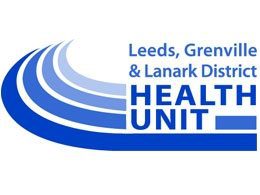Submitted by
Dana Hawthorne RD, Registered Dietitian/Public Health Nutritionist, Leeds, Grenville and Lanark District Health Unit
Diet Fad 1: The Alkaline (Acid-Ash) Diet
The Fad: The alkaline, or Acid-Ash, diet is based on the belief that cancer and other chronic conditions like heart disease and osteoporosis are caused by acidic environments in our body. pH is a measure of how acidic or non-acidic something is. The pH of our blood is between 7.35 and 7.45. The words acidic or non-acidic can also be used to describe foods. Those who promote this alkaline diet claim that acidic foods like meats, dairy and grains cause our blood pH to lower and become acidic. They believe this puts us at risk of developing various diseases. This diet focuses on eating non-acidic foods like vegetables and fruit, nuts and seeds which supposedly keeps the pH of our blood higher, or not acidic.
The Science: Research shows that our bodies tightly control our pH to keep it in the range of 7.35 to 7.45. If the pH of our blood went above or below this, it would be life-threatening. In healthy individuals, the kidneys and lungs work together to keep our body’s pH within that narrow range. Food, in fact, has no impact on our body’s pH. The kidneys will make urine more or less acidic to keep the pH of our blood the same, and this is a normal function of the body. Sometimes the alkaline diet will encourage people to test the pH of the urine; however, this does not reflect the pH of our blood.
Diet Fad 2: The Cleanse
The Fad: Supporters of cleanses claim they improve health by “cleansing” the bowel and removing toxins from the body. Cleanses supposedly promote intestinal health, boost energy and immunity, and start weight loss. Cleanses are often in the form of an herbal, food or medicinal supplement, and may sometimes be referred to as a Detox Diet.
The Science: There is no scientific evidence to show that cleanses maintain or improve bowel health, prevent colon cancer or promote weight loss. In fact, our intestines, lungs, liver and kidneys are always working together to remove waste and toxins from the body. Cleansing diets can be harmful and have unpleasant side effects like cramping or bloating. They may also cause more serious side effects such as dehydration, low blood sugar, or vitamin and mineral deficiencies.
Eating a healthy and well-balanced diet with lots of fibre and water will help keep your bowel healthy and regular, and help you feel good and stay healthy. Foods like whole grains, vegetables, fruit, legumes, nuts and seeds are good sources of fibre. Remember, when you start adding more fibre to your diet, add it slowly and drink lots of fluids, like water.
Diet Fad 3: The Blood Type Diet
The Fad: A person’s blood type is determined by the presence or absence of markers on the red blood cell. These markers are called antigens and are controlled by genes. There are 4 blood types: A, B, AB and O. The ‘eating for your blood type’ diet is based on the belief that our blood type shows the dietary habits of our ancestors, and that by following a certain diet for our blood type, we can reduce our risk of chronic disease.
According to this theory, people with the blood type O are encouraged to follow a higher protein diet with less dairy and grain products; type A should follow a vegetarian diet; type B should focus on eating green vegetables, eggs, low fat dairy products and avoid chicken and pork; and type AB should include tofu, seafood, dairy and green vegetables.
The Science: There is currently no scientific evidence that supports the Blood Type diet. Research has shown that following certain blood type diets may decrease a person’s risk of chronic disease; however, this decrease was not related to a person’s blood type but instead the types of foods they ate. Instead, I encourage people to enjoy a healthy well-balanced diet with lots of colourful vegetables and fruit, whole grains, lean meat and alternatives and lower fat milk and alternatives.
Creating Healthy Bodies and Healthy Minds
Focus on healthy balanced eating, regular physical activity and mental well-being to have a healthy body and healthy mind. Instead of following the latest diet fad, that’s not backed by science, enjoy a variety of foods, including lots of colourful vegetables and fruit. Choose whole grains, lean meat and alternatives, lower fat milk and alternatives, and water over sugar sweetened beverages. Balance meals by filling half your plate with vegetables and fruit, ¼ with grain products and ¼ with meat and alternatives. Add a glass of milk and water to complete the meal. Take time to enjoy your food, eat meals and snacks at regular times and with others, when possible. Listen to your hunger and fullness cues, eat when you are hungry and stop eating when you are satisfied, not stuffed. Try to be active every day, take regular breaks from sitting and keep screen time to a minimum. Be active outside in nature and try new activities that develop your body, skills and confidence.
Healthy bodies look different for different people. Everyone, regardless of shape or size can benefit from being active, eating well, managing stress and getting enough sleep. Focusing on health instead of weight is better for a healthy mind. Respect all bodies and focus on the positive qualities in yourself and others, instead of on appearance. And remember to role model healthy behaviours, you never know who is watching!
For credible sources of nutrition information, speak with a Registered Dietitian by calling EatRight Ontario toll-free at 1-800-660-5853. Visit the Health Unit’s website at healthunit.org, connect with us on Facebook and Twitter or call the Health Action Line at 1-800-660-5853.






